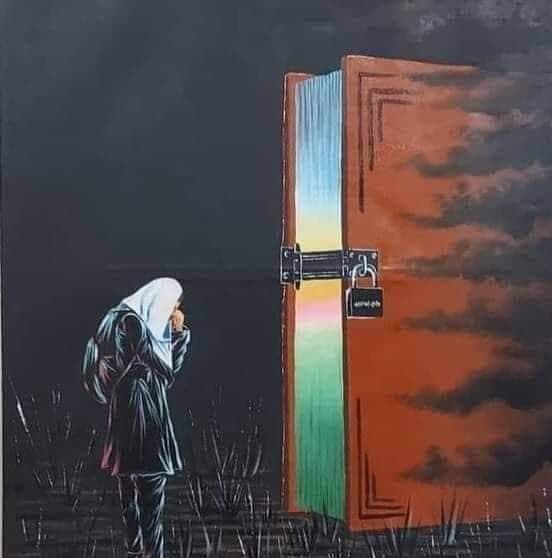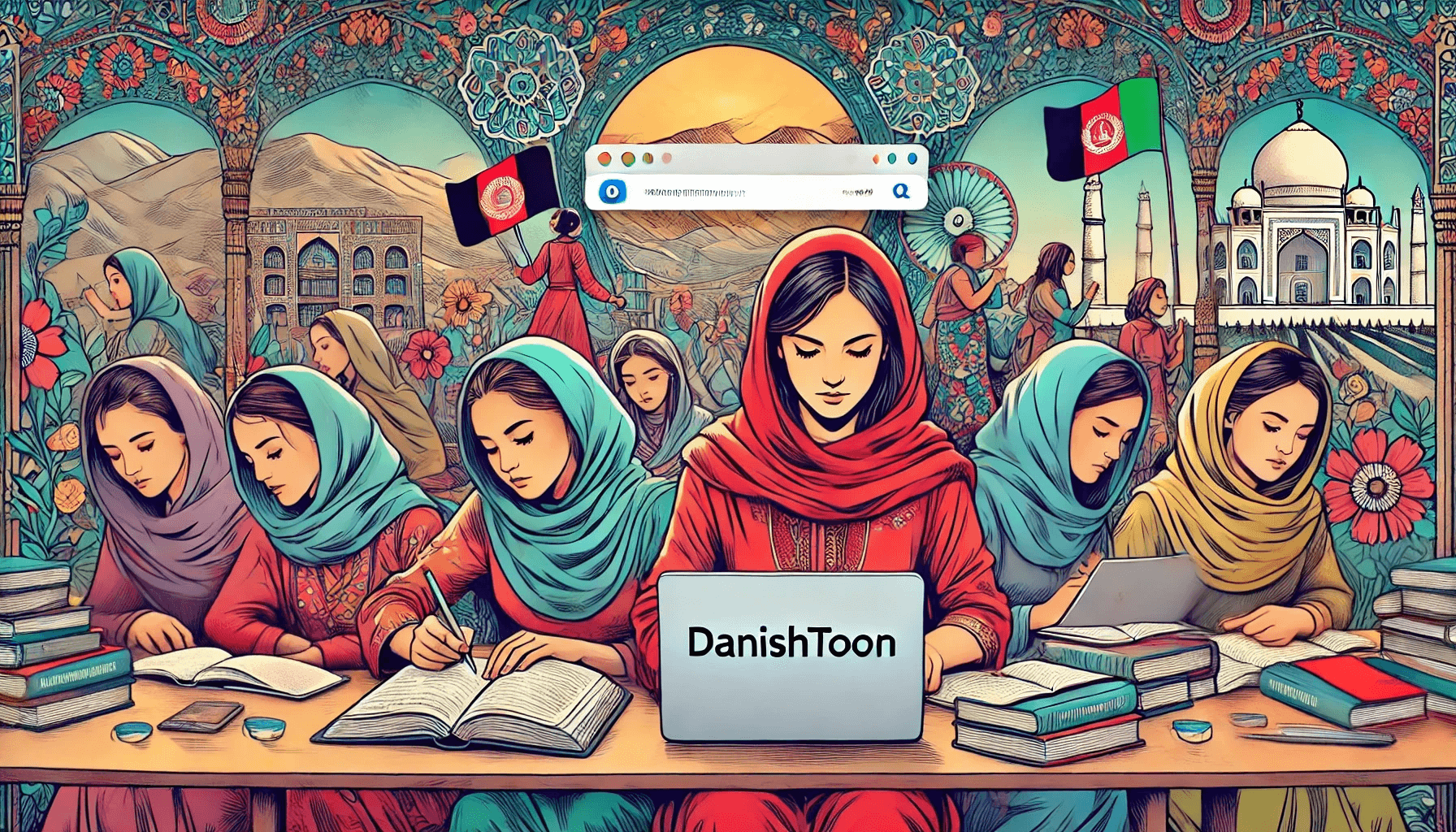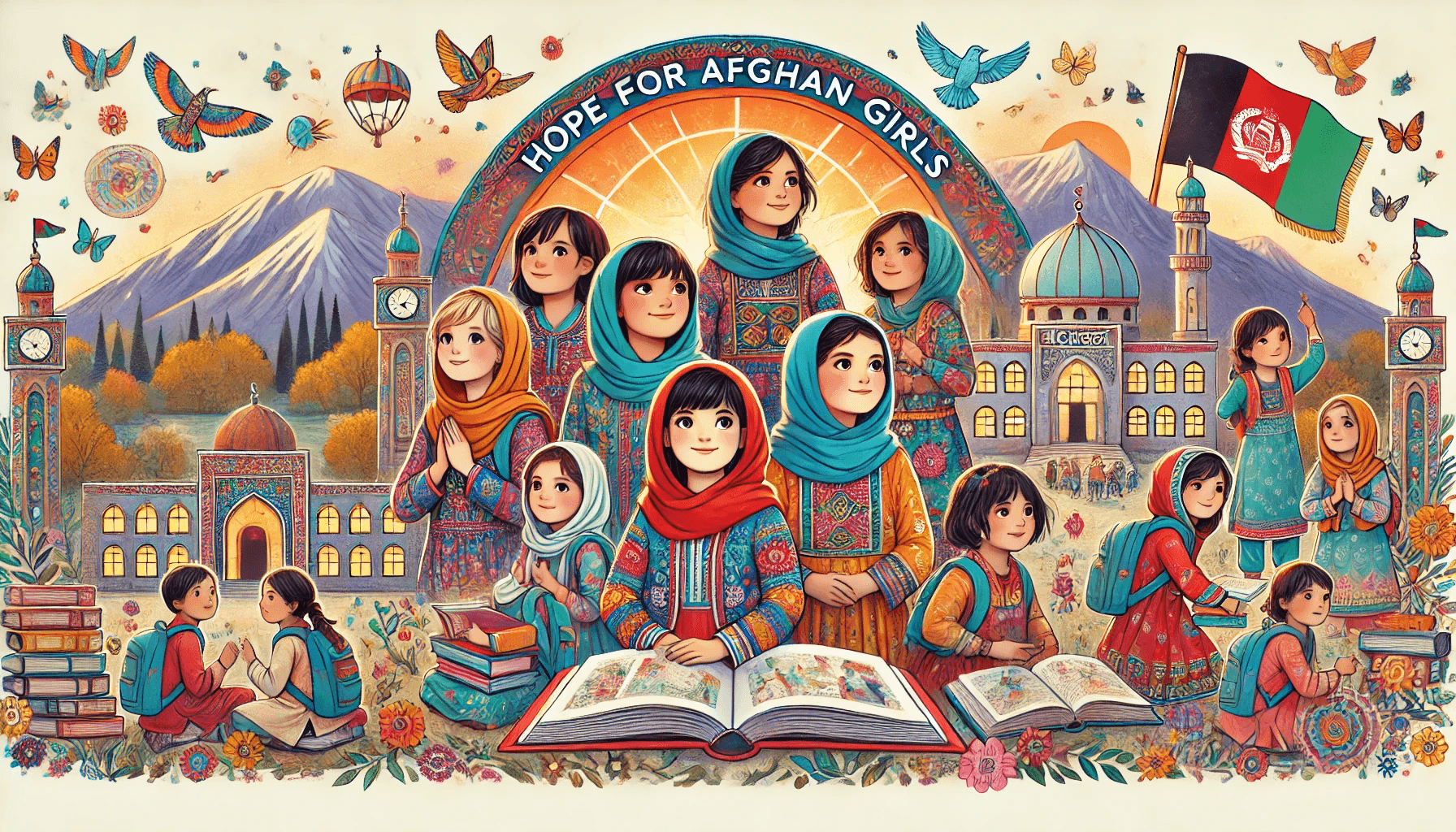Our Mission
At Hope For Afghan Girls, we believe that education is not a privilege but a fundamental human right. Since August 2021, millions of Afghan girls have been denied their right to education beyond primary school. As women's rights activists, we stand in solidarity with Afghan girls and women, advocating for their immediate return to classrooms and the restoration of their educational rights.
The Current Crisis
The educational crisis in Afghanistan represents one of the most severe gender-based human rights violations in the world today. Millions of girls are being denied their fundamental right to learn.
Secondary Education Ban
Girls above sixth grade (typically aged 12+) are banned from attending school
Days Without School
Over 1,000 days have passed with secondary school-aged girls banned from classrooms
University Access
Universities have closed their doors to women, eliminating higher education opportunities
Girls Affected
An entire generation of over 1.4 million girls faces a future without education

A Human Rights Violation
These restrictions violate international human rights standards and destroy the future of millions of bright, capable young women.
As UNICEF stated, "1,000 days out-of-school amounts to 3 billion learning hours lost" for Afghan girls. This is not just a statistic—it represents millions of dreams deferred and potential unfulfilled.
The consequences of this educational ban will echo through generations, affecting not only the girls themselves but the entire social and economic fabric of Afghanistan.
Why We Fight: A Voice for Change

Zulekhabe Yousuf Khan – Education Rights Advocate
"Education is not merely a privilege—it is the fundamental right of every girl in Afghanistan. When I look at my own journey from a student to an advocate, I see how education transforms not just individuals, but families and communities. What we are witnessing today is not just the closing of school doors, but the systematic attempt to close minds and suppress potential."
Each time I speak with mothers who taught their daughters to read by candlelight, or young women who share tattered textbooks in secret gatherings, I am reminded that the hunger for knowledge cannot be decreed away. One former university student told me: "They can stop us from entering classrooms, but they cannot stop us from thinking, learning, and dreaming of a different future."

Jawad Abdiani – Founder of Danishtoon & Human Rights Activist
"In Afghanistan today, we are witnessing the systematic erasure of women's educational rights—a violation that will have consequences for generations to come. When girls are denied education, entire communities suffer. When women are pushed out of classrooms, society loses doctors, engineers, teachers, and leaders who could help rebuild a nation devastated by decades of conflict."
Every day, we receive messages from Afghan girls who study in secret, risking punishment to keep their minds alive. Their determination in the face of overwhelming obstacles is both heartbreaking and inspiring. One young woman wrote to us: "I study English from old textbooks in my bedroom, hoping someday I can return to school. I refuse to give up."
The international community must not grow accustomed to this injustice or accept it as the new normal. The silencing of Afghan girls' voices is not just an Afghan issue—it is a global human rights crisis that demands our attention and action.

Maiwand – University Lecturer & Human Rights Activist
Maiwand is a university lecturer, social and human rights activist. He strongly opposed the Taliban's decision to ban universities, resigning from his position as a form of protest. In addition, he taught girls in a hidden school. Currently, he is working on 'Danishtoon,' an online university specifically designed for Afghan girls.
He was involved in leading national summits and advocacy programs on women empowerment, organizing national campaigns such as collecting stationery for needy people and helping displaced people due to war, coaching and training Afghan women to become business leaders, and advocacy for the protection of minorities' rights in Afghanistan.
Anonymous – Afghan Woman from Kabul
"Every morning, I wake up in a city that no longer recognizes me as a full person. The Kabul I knew—where I once walked to university with books in my arms and dreams in my heart—has vanished. Now, I move through shadows, my existence reduced, my voice muted. But even in silence, I am keeping count of all that has been taken from us."
Life in Kabul today demands a painful calculation with every step outside my door: how to dress, how to walk, how to speak—if I am permitted to speak at all. Yet behind closed doors, we women still gather. "They have taken our classrooms, but they cannot take the knowledge we already possess or our determination to share it," my former classmate whispered during our last secret study group.
I cannot show my face or share my name—that is the reality of our struggle now. But I want the world to know that we have not disappeared. We are still here, still learning, still teaching each other, still finding ways to resist. Our invisibility is not our choice, but neither is it our surrender.
Not Just an Afghan Issue
The educational crisis in Afghanistan is a global human rights issue that requires international attention and solidarity. When the rights of girls are violated anywhere, it affects the cause of equality everywhere.
Resistance Through Education
Despite the ban, Afghan girls continue to seek knowledge through underground schools, online platforms, and self-study. Their resistance through education is a powerful statement against oppression.
Breaking the Silence
By amplifying the voices of Afghan girls and women, we ensure their struggles are not forgotten. Their stories must be told, their dreams acknowledged, and their rights defended.
Our Initiatives
We are committed to supporting Afghan girls' education through concrete initiatives that provide resources, raise awareness, and create opportunities despite the current restrictions.

Danishtoon: Digital Education Platform
Through our Danishtoon initiative, we have created an online platform dedicated to empowering Afghan girls at the university level who face severe educational barriers.
This platform provides:
- Online courses in multiple subjects
- Educational resources that can be accessed discreetly
- Virtual mentorship with female educators
- Community support for continuing education

Hope For Afghan Girls: Awareness Campaign
Our main platform focuses on raising global awareness about the educational crisis in Afghanistan and mobilizing international support for change.
Key activities include:
- Documenting the experiences of Afghan girls denied education
- Providing accurate information about the situation on the ground
- Amplifying the voices of Afghan women and girls
- Connecting activists and organizations working on this issue
Why Girls' Education Matters
The evidence for the importance of girls' education is overwhelming. Investing in girls' education delivers returns for society as a whole.

Economic Development
Educated women increase workforce participation and productivity, boosting economic growth. When women receive quality education, GDP per capita increases, and poverty rates decrease.

Health Outcomes
Education leads to better health practices, reduced maternal mortality, and healthier children. Each additional year of a girl's education reduces infant mortality by 5-10%.

Reduced Early Marriage
Girls who stay in school are less likely to marry young. Each year of secondary education reduces the likelihood of marrying before the age of 18 by five percentage points or more.

Peace and Stability
Communities with educated women experience greater stability and reduced conflict. Countries with higher female education levels are less likely to experience civil wars and recover faster from conflicts.

Gender Equality
Education is the foundation for women's participation in society and decision-making. It empowers women to know and advocate for their rights in all spheres of life.

Community Leadership
Educated women become leaders and role models in their communities, inspiring future generations and creating a cycle of positive change and development.
"Educating girls is not just the right thing to do. It's a smart investment for a country's future."
The exclusion of Afghan girls from education doesn't just harm them individually—it limits the entire country's potential for peace, prosperity, and progress.
Voices from Afghanistan
Behind every statistic is a real girl with dreams, ambitions, and the right to education. These are their stories, in their own words.
"When half of a country's population, which is women, are deprived of work and education, that nation never achieves peace."
Aliya created an online education program that now serves over 550 girls from her remote province. With 30 teachers and 16 staff members, they provide free education following pre-Taliban standards via Google Meet and Telegram presentations.
Aliya's Journey

"Regrettably, very few girls receive the support of their families and have access to the internet and books. Take, for example, eight of 10 families in my neighborhood cannot afford internet costs due to poverty. Those with the means and resources to assist Afghan girls in learning and offering them words of hope are akin to rescuing them from the edge of collapse."
Salma was in the ninth grade when the Taliban took control. She turned to online education, enrolling in English courses, joining a book club, and completing a journalism program. Once aspiring to be a doctor, she now dreams of becoming a journalist to share Afghan women's stories.
Salma's Story

"Several of my classmates got married last year. I asked them why they had done it at a such young age. They said that without going to school what else could they do? They got married last year, and now they have kids."
Khadija, 18, was in 11th grade and a top student when the Taliban seized control. She dreams of becoming a doctor and now attends a private midwifery institute, though her world is limited to her room, the institute, and the route between them.
Khadija's Determination


Their Stories Matter
These testimonials represent thousands of similar stories across Afghanistan. Each voice is a powerful reminder of what is at stake and why we must act.
By sharing these stories, we ensure that the world does not forget the ongoing educational crisis in Afghanistan. Behind each testimony is a human being whose potential is being artificially limited by unjust restrictions.
Our Voices: Media Interviews & Coverage
Listen to the stories of Afghan activists and educators as they share their experiences and advocate for women's educational rights through various media platforms.

European Digital Education Hub: Education for Afghan Women
European Commission
Join the European Digital Education Hub designed for educators! Seeking solutions for daily challenges in digital education. Focus on how to provide education to Afghan women and feedback on Danishtoon, a fully remote university for Afghan women.

Danishtoon: Online University for Afghan Women
Danishtoon Official Website
Explore Danishtoon, our online university specifically designed for Afghan girls to continue their education despite restrictions. Learn about our programs, methodology, and impact.
Visit Website →
Second Life for Afghan Women (SLFAW)
Facebook Page
Follow our Facebook page for updates, stories, and ways to support Afghan women's education and rights. Join our community of advocates and allies.
Visit Facebook Page →Connect With Us
Help amplify the voices of Afghan women and girls by following our official channels and sharing our resources with your network. Together, we can ensure these stories reach a global audience.
Spread the Word
Share these links with educators, advocates, and those interested in supporting Afghan women's education rights.

